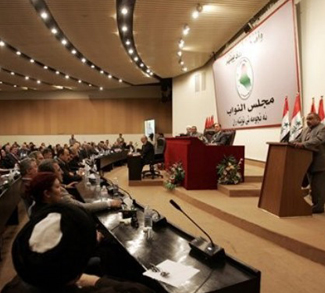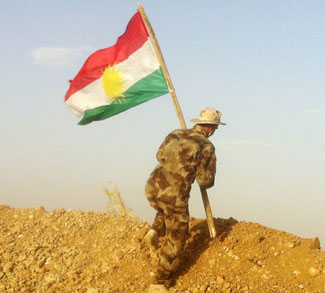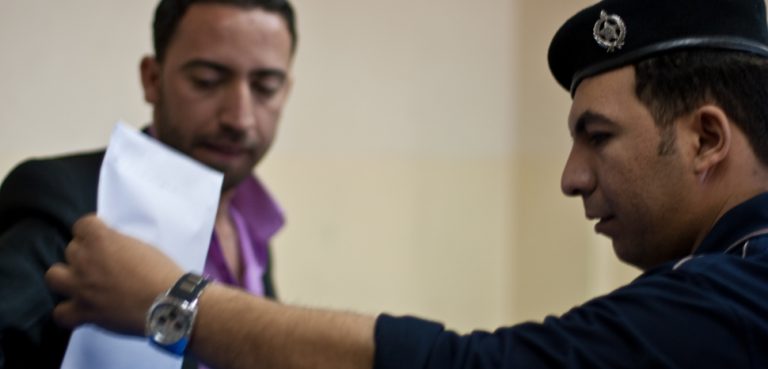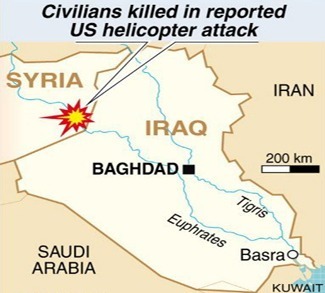Summary
While a surge in Afghanistan and protests in Iran have been grabbing all of the headlines, Iraq’s political landscape has quietly started to heat up in the lead up to elections next March.
Analysis
Sectarian violence in Iraq has recently spiked – a trend that can be expected to continue leading up to parliamentary elections in March. While the recent upsurge is still tame compared to the height of the insurgency, the character of the attacks is disquieting insofar that they have tended to be either large, well-planned operations aimed at government institutions or small-scale sectarian assassinations. Of the former, there was the December 8th Baghdad attacks that claimed 122 lives, as well as this week’s double suicide bombing in Ramadi. As for assassinations, one needs not look beyond the Iraq Body Count (IBC) to see a long list of sectarian killings that do not make it into the international news.
As was the case for the Baghdad bombings of last August, this week’s Ramadi attack has some of the markings of an ‘inside job.’ It took place in a high-security zone, a fact that suggests collusion, and the second bomber was wearing an Iraqi army uniform. The risk remains high that violence will be used as a campaigning tool within Iraq’s nascent political system, and this means that a rash of new attacks should be expected leading up to next March.
Iraq’s post-war political infrastructure has yet to bridge sectarian divides in Iraqi society, and there is no reason to believe that parliamentary elections in March will deviate from past sectarian voting patterns. With this in mind, the Obama administration has taken up the role of arbitrator in Iraqi politics, scrambling to keep the Iraqi state together by pressuring various factions to cooperate. However, distrust still runs deep.
Just last week, five members of the Sons of Iraq (SOI), a Sunni militia group and key ally against Al Qaeda, were found murdered at a checkpoint just south of Baghdad. In the past two years alone, some 212 SOI leaders have been killed in various attacks. The Obama administration has maintained pressure on the al-Maliki government to absorb 20 percent of SOI members into the Iraqi security forces, but so far the process has been plagued by hesitation and mutual distrust. As long as sectarian militias remain divorced from the national security apparatus, a descent into nation-wide violence stands as a grim possibility.
Even if Prime Minister al-Maliki wins a second term by shunning pro-Iran Shiite parties and turning towards nationalist Sunnis, ostensibly a victory for Iraqi unity, their alliance will be lubricated by a shared distrust of Kurdish populations in northern Iraq.
The Kurdish problem persists as an elephant in the room and a potential catalyst for civil war. Negotiations to absorb the 90,000-strong Kurdish militia, or peshmerga, into the national security apparatus commenced in late December, but they will be nothing more than a formality until the larger issues of a Kirkuk referendum and national oil revenue sharing legislation are resolved.
Doing so will be no easy task. Kirkuk is estimated to be sitting on top of 25 percent of Iraq’s total oil wealth, making it a prize that the Iraqi national government will not easily relinquish. Kurdish demands for a referendum in the city have so far been deflected by the central government, which worries that a pro-Kurd result would bestow Iraqi Kurdistan with control over 40 percent of Iraq’s total oil wealth. The situation has already reached the point where Kurdish authorities nearly held a unilateral referendum in August, only to be forestalled by the Obama administration’s dispatch of a senior diplomat to Kirkuk.
It is possible that Prime Minister al-Maliki has decided to delay talks on a referendum until after March elections. In doing so, he could aim for a second mandate propped up by nationalist Sunni allies and reduce his dependence on Kurdish politicians. This scenario would produce an even more starkly defined ethnic divide- Sunnis and Shiites banded together to push against Kurdish land claims and autonomy. It would threaten the resolution of a slew of important issues, ranging from Kirkuk and Mosul to national oil sharing and eventual weapons sales.
History has shown that when political institutions fail to resolve conflict, violence follows. The period leading up to, and directly following elections in March will be fundamental in shaping Iraq’s future.




